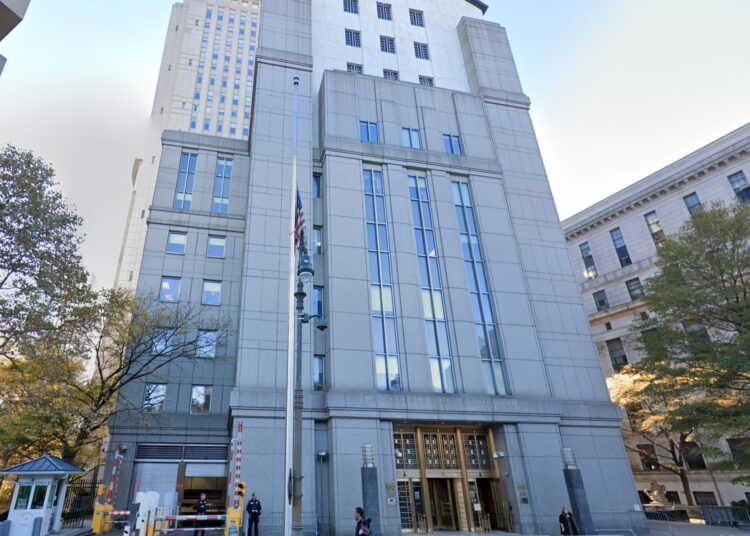Abdullah Bozkurt/Stockholm
A federal judge in New York has joined his peers in other US states in halting the Turkish government’s abuse of the American judicial system to target critics of President Recep Tayyip Erdogan and gather intelligence under the guise of legal process.
Judge John P. Cronan of the Southern District of New York invalidated subpoenas issued at Turkey’s request that sought the US banking records of Cevdet Türkyolu, a longtime aide to the late Turkish Islamic scholar Fethullah Gülen, who was a prominent critic of Erdogan.
Judge Cronan had initially granted the subpoenas on December 17, 2024. However, he reversed his ruling on August 1, stating that Turkey failed to follow proper legal procedures and offered inadequate justification for its sweeping discovery request. His decision brings him in line with other federal judges across the US who have rebuked Turkey’s attempts to exploit the American legal system for political purposes.
This marks another failed attempt by Erdogan’s government to circumvent US legal safeguards after repeated unsuccessful efforts to extradite critics or obtain sensitive information through the US Justice Department, under both Democratic and Republican administrations. When those channels were blocked, Erdogan’s advisors turned to US district courts as a backdoor to pursuing politically motivated investigations already underway in Turkish courts controlled by the executive branch.
Initially, Turkey sought assistance under the 1979 Mutual Legal Assistance Treaty (MLAT) between the US and Turkey to request extraditions and financial records of dissidents. But the US Justice Department rejected those requests, citing a lack of credible evidence.
The ruling by US Judge John P. Cronan of the Southern District of New York blocked Turkey’s attempt to abuse the US judiciary in a political witch hunt:
Unable to pass that scrutiny, Turkish authorities began filing petitions directly with US district courts under a little-known federal statute, 28 U.S.C. § 1782, which allows foreign litigants to request US court assistance in obtaining evidence for use in legal proceedings abroad. The law enables foreign governments and parties to seek document production or witness testimony from individuals or entities within the US.
While the statute is intended to support legitimate legal cooperation, it has been misused by authoritarian regimes including Russia, China and several Middle Eastern governments in the past to spy on dissidents and access private data under the pretense of legal discovery.
Turkey has now joined that list.
The Erdogan government’s tactic involves initiating politically motivated legal cases in Turkey, then leveraging US courts to obtain documents from individuals and entities in the US. Because individual US judges may be unfamiliar with Turkish politics, they may inadvertently approve requests that would otherwise be denied by the US Justice Department.
In recent years, several US judges have recognized and pushed back against Turkey’s attempts to abuse the judicial system for political ends. In July 2021 Judge Matthew F. Kennelly of the Northern District of Illinois rejected Turkey’s request to obtain extensive information about individuals and entities allegedly affiliated with the Gülen movement, concluding that the application lacked credible evidence and appeared to be an effort to identify critics of the Erdogan government rather than to pursue a legitimate criminal investigation.
Similarly, in February 2021 Magistrate Judge Elizabeth A. Preston Deavers in Ohio denied a Turkish application under §1782, citing its overly broad scope, inconsistencies in the submitted documents and failure to utilize the MLAT process.

Both judges emphasized that Turkey’s efforts bypassed established protocols and placed undue burdens on US entities, reflecting a pattern of politically motivated legal fishing expeditions.
In contrast the Southern District of New York initially granted Turkey’s request in December 2024, allowing it to obtain financial records from Bank of America and Wells Fargo related to Cevdet Türkyolu and several others. The petition, filed through the US law firm Nixon Peabody LLP, claimed the records were relevant to a Turkish insider trading investigation.
The banks complied, but before Turkey could act on the documents, Türkyolu filed a legal challenge. The court then not only vacated its previous order but also rejected Turkey’s renewed application.
In his ruling Judge Cronan cited multiple deficiencies in Turkey’s approach. He noted that Turkish authorities had violated Federal Rule of Civil Procedure 45 by failing to notify Türkyolu before serving the subpoenas on banks, depriving him of the chance to object. Furthermore, the application under §1782 did not demonstrate that the evidence sought would serve a legitimate foreign proceeding.
“The materials submitted by Türkiye in support of its application — a three-page declaration and a copy of a 2017 insider-trading indictment — do not adequately support its request for discovery in light of Türkyolu’s colorable allegations of improper motive,” the judge wrote.
Judge Cronan also referenced Türkyolu’s claim that the Erdogan government had waged a campaign of harassment against Gülen followers since 2013, after the movement publicly criticized widespread government corruption.

The case, launched by Turkish prosecutors, uncovered a massive corruption network that implicated then prime-minister and current president President Erdogan and his associates in bribery scandals linked to Iranian sanctions violator Reza Zarrab and former al-Qaeda financier Yasin al-Qadi.
Erdogan interfered in the investigation, dismissing judges, police chiefs and prosecutors who had exposed the corruption. Gülen condemned Erdogan for corrupting the government and enriching himself through illicit gains by blatantly abusing his power. That critical stance prompted Erdogan to declare Gülen his enemy and crack down on his movement using the full power of the state.
The government’s crackdown on the Gülen movement dramatically intensified following a 2016 coup attempt, widely seen as a false flag operation orchestrated by Turkish intelligence to justify mass purges of the civil service. Some 130,000 public employees including top judges, prosecutors and police chiefs were dismissed and replaced with loyalists, eroding the rule of law.
Since then, Erdogan has weaponized the Turkish intelligence agency (MIT), captured the judiciary and pursued critics at home and abroad through sham legal proceedings. His government’s international legal assistance requests, including to the US, are seen by rights groups as part of a broader campaign to intimidate and silence dissent.
Türkyolu, who had lived in the US with Gülen since 1999 and served as his personal assistant until Gülen’s death in 2024, was one of the targets of this transnational repression.
While Turkey maintained that its subpoenas related to a legitimate financial crime probe, the US court found that the insider trading case lacked evidence of any ongoing proceeding. The alleged money laundering investigation, Judge Cronan added, appeared speculative and unsupported by solid facts.
In addition to revoking its prior order, the court asked both parties to submit further briefs on how to handle the financial records already obtained under the now-invalid subpoenas.
This ruling represents a serious setback to Ankara’s increasingly aggressive use of international legal tools to pursue its critics. Rights organizations have long warned that Turkey’s abuse of these mechanisms is politically motivated and aimed not at justice but at silencing dissent across borders.












